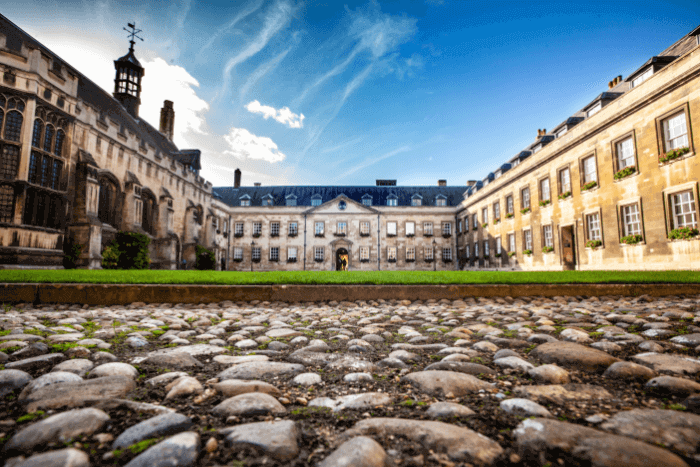Guide to Postgraduate Study in the UK
Welcome to our comprehensive guide on postgraduate study in the UK. Whether you’re considering a master’s degree, research program, conversion course, or professional qualification, we’ve got you covered. Explore the different types of courses, entry requirements, and top universities to help you make informed decisions. Join us as we delve into the world of studying for a postgraduate degree in the United Kingdom.
What is postgraduate study?
Postgraduate study is an advanced level of education pursued after completing an undergraduate degree. It offers individuals the opportunity to deepen their knowledge, specialize in a particular subject, and enhance their career prospects. It encompasses a range of programs such as taught courses, research degrees, conversion courses, and professional qualifications.
Taught courses are structured programs where students attend classes and receive instruction from professors. Research degrees focus on independent research and the production of a thesis or dissertation. Conversion courses help individuals transition into new fields by providing foundational knowledge and skills. Professional qualifications cater to vocational careers and often involve practical training and assessments.
By engaging in postgraduate study, individuals can gain a deeper understanding of their chosen field, develop specialized expertise, and expand their professional networks. It is a valuable path for personal growth, intellectual development, and career advancement.
Types of postgraduate degrees and courses
1. Taught courses
The most common types of taught courses are master’s degrees. There are several available, including Master of Arts (MA), Master of Business Administration (MBA), and Master of Science (MSc).
MA (Master of the Arts)
The MA is offered in arts, humanities, and some social science subjects, and lasts 1–2 years. At the universities of Oxford, Cambridge, St Andrew’s and others, the MA equivalent is called the Master of Studies (MSt) and is a 9-month course. You can complete them on a fulltime or part-time basis, depending on whether you would like to work alongside it or not.
MBA (Master of Business Administration)
The MBA is a prestigious qualification in the field of business, and usually lasts 12–15 months, though it can be longer. An MBA is unlike other master’s degrees in that you don’t normally study for one straight after your undergraduate degree, but instead have a few years of professional experience.
MSc (Master of Science)
The Master of Science (MSc), a degree typically pursued after studying science at university, covers a broad range of scientific subjects. The MSc can be either a taught or a research degree, and it lasts 1–2 years. In engineering, the equivalent degree is called the Master of Science in Engineering, abbreviated MSc (Eng), which also lasts 1–2 years.
MRes (Master of Research)
There is also the Master of Research (MRes) degree, which is predominantly research-focused, with a smaller taught component. The MRes degree normally involves writing a dissertation or project and lasts 1–2 years. Like the MA, these can usually be taken on a part-time basis if you cannot or do not wish to commit to full-time study.
Postgraduate certificates and diplomas
Lesser-known taught courses are the postgraduate certificates and postgraduate diplomas. These are considered to be more advanced than bachelor’s degrees, but less advanced than master’s degrees. Both postgraduate certificates and postgraduate diplomas require you to write a dissertation. Postgraduate certificates and postgraduate diplomas are both shorter than master’s degrees, lasting approximately 4 and 9 months, respectively.

2. Research degrees
Research degrees are advanced academic programs emphasizing independent research over classroom learning. These degrees include the Master of Philosophy (MPhil), Master of Research (MRes), Doctor of Philosophy (PhD), and Doctor of Philosophy in specific fields (DPhil). Ranging from 1 to 4 years in duration, they involve conducting original research, producing a substantial thesis or dissertation, and defending this work in a viva voce examination. Designed for those seeking a career in academia or wishing to deepen subject-specific knowledge, research degrees require critical thinking and advanced research skills.
MPhil (Master of Philosophy)
In addition to the MSc, MSc(Eng), and MRes, there is another type of research master’s, the Master of Philosophy (MPhil). The MPhil is more similar to a PhD/DPhil than the other master’s degrees, as it is entirely research-focused, and involves writing a thesis. The main difference between an MPhil and a PhD/DPhil is the length of the thesis; MPhil theses are shorter. MPhil degrees last 2 years, and it may be possible to directly “upgrade” to a PhD/DPhil by studying for an additional year or more.
Doctorates
Doctorates represent one of the primary forms of research degrees. The Doctor of Philosophy, commonly abbreviated as PhD or DPhil, is the most notable of these. While the PhD is conferred by most UK universities, the DPhil is unique to the Universities of Sussex and Oxford.
A glimpse into the day in the life of a PhD student reveals a comprehensive journey. These students, over a period of 3 to 4 years, engage in original research that results in fresh, publishable insights. This research is ultimately compiled into a thesis.
Before being awarded the degree, the candidate must successfully defend their thesis before two examiners in a viva, an oral examination. Upon passing the viva, the student is usually asked to make a few revisions to their thesis. Once these modifications are approved, the student officially graduates.
Less traditional than the PhD/DPhil are the integrated PhD, also called the “new route PhD”, and professional doctorate.
In integrated PhD courses, you study for a 1-year MRes before moving onto a 3-year PhD. These courses are only offered at a handful of universities in the UK. Integrated courses include taught modules, practical elements, and research, meaning they allow you to develop a wide range of academic skills.
Professional doctorates are mainly aimed at people working in vocational careers, including healthcare, education, and engineering. These courses have a significant taught component, and a smaller research component. Professional doctorates are often studied on a part-time basis, and they can last anywhere between 2 and 8 years. Projects often deal with real-life issues of interest to your employer. Some professional doctorates are accredited by a professional body, for example, the British Psychological Society (BPS).
3. Conversion and vocational courses
Conversion courses are intense courses which allow you to develop skills complementary to your undergraduate degree or professional career. These courses can last anywhere from a few months to several years, depending on whether the course is full- or part-time. Conversion courses are usually vocational, and are offered in the following subjects: Law, Medicine, Nursing, Education, Psychology, Social Work, and Business.
4. Professional qualifications
Professional qualifications are vocational courses relating to a specific career path or industry. These courses are often awarded by a professional organisation to ensure work meets industry standards. For some industries, professional qualifications are essential. For example, to become a qualified solicitor, you must undertake the legal practice course (LPC). For some careers, they are not essential, but add to your CV (Curriculum Vitae) and may increase your chance of success.

What are the benefits of postgraduate study?
There are several reasons why you might want to carry out postgraduate study. You might need a postgraduate qualification to meet the entry requirements for a job or PhD course. You might want to gain a better understanding of your subject or gain knowledge, skills, and contacts for a particular industry. Alternatively, you might have enjoyed your undergraduate degree immensely, and want to delve into your chosen subject further.
1. Enhanced job opportunities
Postgraduate qualifications can be a requirement for certain jobs or PhD programs. By obtaining a postgraduate degree, you broaden your career prospects and increase your chances of landing your dream job or academic position.
2. Deepened subject understanding
Postgraduate study allows you to delve into your field with greater depth. This higher level of education enables you to gain a better and more detailed understanding of your chosen subject.
3. Acquisition of industry-specific skills and contacts
As a postgraduate student, you don’t just gain theoretical knowledge. You also develop practical skills and form valuable contacts in your chosen industry, which could prove crucial in your future career.
4. Further exploration of your passion
If you thoroughly enjoyed your undergraduate studies, a postgraduate course allows you to extend that journey. You can explore your passion further, deepen your knowledge, and engage with your chosen subject on a more advanced level.
What are the requirements for postgraduate study?
Postgraduate study entails a diverse range of requirements, specific to each course and institution. If you’re wondering how to become a postgraduate student, the first step is to thoroughly research and confirm the prerequisites with your preferred university before submitting an application. Here is a breakdown of the requirements for different types of postgraduate study:
Master’s and Postgraduate Certificates and Diplomas
For master’s courses, you usually need a good second-class honours degree or above in a relevant subject. Some institutions and courses require a 2:1 or above, others a 2:2. Some entry requirements include a particular degree percentage. For the MBA course, you also need to have work experience (minimum of 3 years of full-time work), and take an additional examination. Some business schools have their own entrance test, while others use the Graduate Management Admissions Test (GMAT). If you’re an international student, you will need an IELTS score of 6.0–6.5 for entrance into an MBA course.
For postgraduate certificates and diplomas, the entry requirements are the same as master’s degrees: a 2:1, or sometimes a 2:2, honours undergraduate degree in a relevant subject.
PhD / DPhil
For doctorates, in addition to an undergraduate degree, you’ll need a research degree or one with a research component. This could mean you have a bachelor’s and either an MRes or MPhil. Alternatively, you may have an integrated master’s degree. Experience in working alone on a project is also desirable, and being able to demonstrate good written and oral communication skills will boost your application.
Conversion courses
For conversion courses, you almost always need a 2:1 bachelor’s degree, but, unlike the courses above, this can be in any subject. It may be possible to enter a course with a 2:2 and relevant work experience, as the latter strengthens your application.
Professional qualifications
For professional qualifications, the entry requirements vary. For the legal practice course (LPC), you need either a law degree or the graduate diploma in law (GDL). For the association of chartered accountants (ACA) qualification, you need A-levels (or equivalent). You don’t need an undergraduate degree, but it is desirable in some fields.
How do I choose a university for postgraduate study?
Choosing the right university for postgraduate studies can be a daunting task. This decision will have a significant impact on your educational journey, and it’s important to consider a variety of factors that will ensure the chosen institution aligns with your aspirations and preferences. Here are the steps to guide you through this process
Determine your subject of interest
Your initial focus should be pinpointing the subject you aspire to study, or choosing the right university course. Identifying this will narrow your search to universities offering these specific courses and subjects.
Identify your university type preference
Think about your ideal university. Do you prefer small or large universities? Consider the balance between a university’s reputation for research and teaching. These factors will help you find a university that aligns with your preferences.
Consider the university’s location
Take into account where in the UK you want to study. Do you prefer an urban or rural environment? Location plays a major role in shaping your university experience.
Assess available opportunities and facilities
You may need or want access to specific opportunities or facilities like societies, subject libraries, or sports facilities. Ensure your chosen university offers these, as they can greatly enrich your academic journey.
Research universities and courses
Various resources can provide you with in-depth information about individual universities, departments, and courses. Start by checking university websites and online profiles. If you’re a student of Engineering or Medicine, read our lists of the top Engineering universities in the world and best university to study medicine in the world. The more informed you are, the better equipped you’ll be to make a decision.
Visit open days
Attend university open days when possible. You can often get a better feel for a university by visiting in person, allowing you to truly envision yourself studying there.
Seek advice
Don’t hesitate to ask for advice. Speak with lecturers, friends, or family, particularly if they’re familiar with the university or course you’re considering. Their insights can provide valuable perspective to help inform your decision.
Which universities are the best in the UK for postgraduate study?
The UK has a wide range of academic institutions, located all over the country. You can rank them by using university and subject league tables which are published online by several organisations. Rankings will vary depending on the source and year. Below we’ve shared some of the most prestigious universities for postgraduate study:
The University of Oxford & The University of Cambridge
The Universities of Oxford and Cambridge have made a name for themselves as the oldest and best universities in the UK, and are known collectively as “Oxbridge”. Both universities have an excellent national and international reputation.
Oxford and Cambridge are unusual for UK universities in that they are made up of colleges. In Oxbridge, all students, both undergraduate and graduate, are a member of a college. Colleges are not only part of the university but are also separate academic institutions. Colleges are physical buildings, but more importantly, they are academic and social communities. Colleges provide teaching, welfare, and support for students, as well as facilities, including libraries, dining halls, and sports facilities.
All graduate students are members of a middle common room (MCR), which provide social events. Graduate students can sometimes live in college, normally only in their first year. However, this depends on the amount of graduate accommodation available, which varies widely by college. When you apply to Oxford and Cambridge, you can choose to apply to a specific college or submit an open application, meaning that you will be assigned a college.
Imperial College London
Another top UK university is Imperial College London, known as “Imperial”. Imperial is located in London, the UK’s capital city. Imperial is unique in the UK in that it only offers courses in the fields of science, engineering, medicine and business. However, there is a wide range of taught and research courses available. All Imperial degrees are complemented by a professional development programme, which takes place in their graduate school.
The University of Edinburgh
The University of Edinburgh is also a top UK option, and is based in Scotland’s capital. Edinburgh is one of the world’s top universities, with excellence and innovation in both research and teaching. There are many taught and research courses available, more than 60 of which are online, providing a flexible option for further study. In terms of the employability of its graduates, Edinburgh is ranked in the top 10 in the UK and top 100 in the world. Edinburgh’s graduates are also among the UK’s top earners.

How do I apply for postgraduate study?
There is no centralised admissions system for postgraduate study in the UK. The exception is UCAS Postgraduate, an online system which only covers some courses.
In general, you must apply to each university directly, using their individual admissions system. You may also have to pay an application fee. Make sure you check the application deadlines for your desired university and course, as these can be early in the academic year, for example, December.
Which jobs can I get after my postgraduate study?
For master’s graduates, the most popular job sectors are business and finance, human resources (HR), education, healthcare, and management. It is important to note that, in the current job market, master’s graduates typically compete with graduates with first-class bachelor’s degrees.
For PhD graduates, only about 1 in 3 remain in academia, getting jobs as university researchers or higher education teaching professionals. The remaining proportion of graduates go into non-academic roles. The most popular roles are clinical psychologists, biochemists, medical scientists and medical practitioners.
For the most part, Education, Law, and Medicine graduates enter the relevant vocational careers.
How much does postgraduate study cost?
Fees depend on the level and duration of a course. Postgraduate certificates and diplomas are generally cheaper than master’s courses. In turn, master’s courses tend to be cheaper than doctorates. An MBA normally costs more than a PhD.
Fees for UK “home” students range from around £5,000 to £30,000 per year. The average fee is approximately £11,000 per year.
Fees for international students are generally higher than for “home” students. Fees for international students range from around £8,000 to £30,000 per year, with an average of £11,000 per year. EU passport holders can often pay “home” fees, and other international students may also qualify.
Loans
In terms of funding, there are multiple sources available. Of course, you can use your own funds to pay for your degree. However, you may not have enough money saved to do this. There are postgraduate loans available to cover your degree costs, including a new loan for master’s degrees. It is for British citizens, but some international students may also be eligible so it’s worth taking a look. Some banks will offer loans to fund MBA students.
Scholarships and bursaries
Before you commit to a postgraduate loan, make sure you check whether you are eligible for any scholarships or bursaries, as unlike loans these don’t have to be repaid. Scholarships and bursaries are provided by universities and colleges, private companies, charities, and the government.
Funding
The seven UK research councils also provide funding for students. You should normally apply through your course provider. You can also apply to studentships, which are postgraduate positions that come with funding.
Employers are also potential funding sources. You may be able to work while studying or commit to working for the employer for a fixed period after graduating.
Many charities offer small grants. Your university careers service may have a directory of these charitable organisations.
For the PGCE course, you need to pay tuition fees. However, universities sometimes offer discounts to alumni (enquire about this if you are interested). In addition to the funding sources discussed above, there are tax-free teaching bursaries and scholarships. For these, the amount you receive depends on the subject in which you are being trained. You can find out how much you might be entitled to bursaries and scholarships for teachers’ training.
There is dedicated funding available for disabled students, called the Disabled Students Allowances (DSAs). You can find out more, and see whether you’re eligible for the disabled student allowance.

Next steps for future postgraduate students
- If you’re looking to progress to postgraduate study in the next couple of years, start visiting universities and open days! It’s a great way to meet the department where you might end up working.
- Read our guide to UCAS and Personal Statements to help as you prepare an application to study in the UK.
- Not sure which degree course is right for you? Try an Oxford Summer School with us at Oxford Scholastica Academy. Our Oxford summer courses are the perfect place to try a subject for two weeks in-person or online. You’ll have tuition, seminars, masterclasses and hands-on learning experiences a subject that you might want to take at university.
Preparing for undergraduate study?
Oxford Scholastica’s summer schools for 12-18 year olds aim to give school students the opportunity to study at university level before choosing the subject they wish to pursue at undergraduate level. Take a look at our summer programmes!